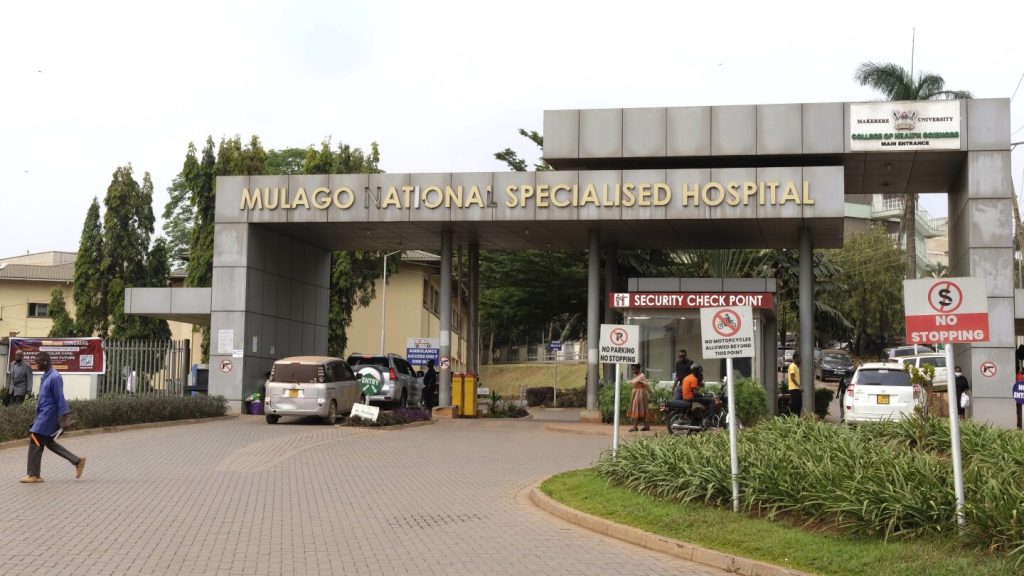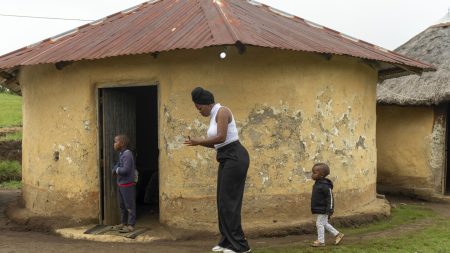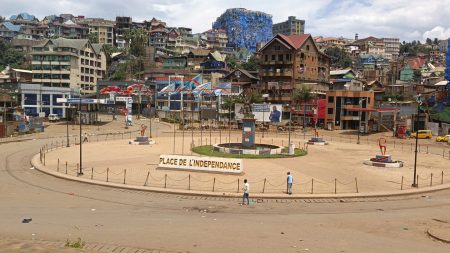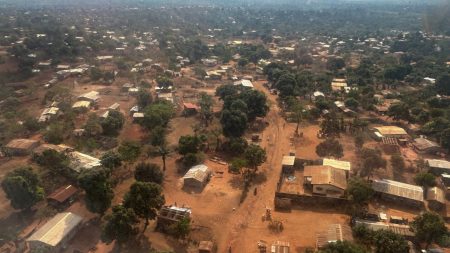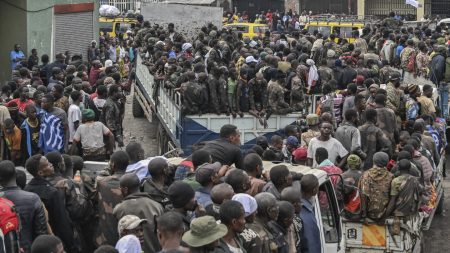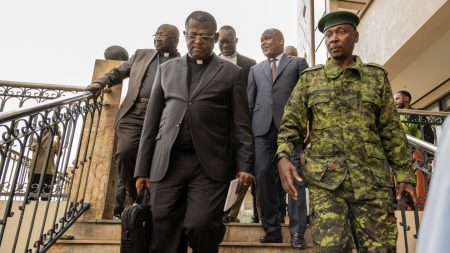Uganda Begins Clinical Trial of Ebola Vaccine Amid Outbreak
Introduction: Uganda’s Latest Ebola Outbreak
Uganda has recently declared an outbreak of the Sudan strain of Ebola, marking a new public health challenge for the country. On September 19, 2023, Ugandan authorities announced the start of a clinical trial for a vaccine aimed at combating this deadly virus. The trial comes just days after the death of a nurse in Kampala, the capital, who succumbed to the disease. This outbreak has raised concerns due to the highly mobile population of Kampala, which is home to approximately 4 million people. Health officials are working tirelessly to identify the source of the outbreak and contain its spread.
The outbreak was confirmed after the death of a nurse who had sought treatment at a hospital outside Kampala and later traveled to Mbale, a city in eastern Uganda. Before his death, the nurse also visited a traditional healer, highlighting the complexities of tracking the spread of the virus in a population that often seeks alternative forms of care. Two more cases were confirmed on Monday in relatives of the deceased nurse, bringing the total number of confirmed cases to three.
Ebola, a viral hemorrhagic fever, is spread through contact with the bodily fluids of an infected person or contaminated materials. Symptoms include fever, vomiting, diarrhea, muscle pain, and in severe cases, internal and external bleeding. Rapid response is critical to preventing further spread, as the virus can have a high mortality rate if not treated promptly.
The Clinical Trial: A Promising Step Forward
In response to the outbreak, Ugandan health authorities, in collaboration with international partners, have launched a clinical trial of a vaccine designed to combat the Sudan strain of Ebola. The trial began just four days after the outbreak was declared, demonstrating the urgency and importance of the situation. The vaccine is being administered to health workers and individuals who have been exposed to the virus, as they are at the highest risk of infection.
The trial is a significant milestone in the global fight against Ebola. According to Dr. Matshidiso Moeti, the World Health Organization (WHO) Regional Director for Africa, the trial underscores the power of collaboration in addressing public health emergencies. "This marks a major milestone in public health emergency response and demonstrates the power of collaboration for global health security," Dr. Moeti said in a statement.
The vaccine being used in the trial was provided by IAVI, a nonprofit scientific research organization. With more than 2,000 doses available, health authorities are well-equipped to vaccinate those at risk. This is not the first time an Ebola vaccine has been used successfully. During an outbreak of the Zaire strain of Ebola in the Democratic Republic of Congo between 2018 and 2020, a trial vaccine known as rVSV-ZEBOV was used to vaccinate approximately 3,000 people at risk, helping to contain the spread of the disease effectively.
The Challenges of Containing the Outbreak in Kampala
Containing the outbreak in Kampala presents unique challenges due to the city’s densely populated and highly mobile population. With over 4 million residents, the potential for rapid spread is high. The deceased nurse’s movements before his death further complicate efforts to trace contacts and prevent further transmission. He had traveled from Kampala to Mbale, where he was admitted to a public hospital, and also sought care from a traditional healer. This highlights the difficulty of tracking all individuals who may have been exposed to the virus.
Tracing contacts is a critical component of Ebola containment. To date, at least 234 contacts have been identified, according to the Ugandan Ministry of Health. Health workers are working around the clock to monitor these individuals for symptoms and ensure they receive prompt medical attention if they become ill. However, the sheer size of the population and the ease of movement within and outside the city pose significant hurdles.
Another challenge is the lack of awareness about Ebola in some communities. In some cases, individuals may not seek medical care immediately, either due to fear, misinformation, or cultural practices. This delay can lead to further spread of the virus. Health authorities are working to educate the public about the risks of Ebola and the importance of seeking immediate medical attention if symptoms arise.
Vaccine Access and International Collaboration
The availability of more than 2,000 doses of the candidate vaccine against the Sudan strain of Ebola is a positive development in the fight against this outbreak. The vaccine, provided by IAVI, is the result of international collaboration and research into Ebola viruses. The rapid deployment of the vaccine for this trial is a testament to the progress made in global health security in recent years.
This is not the first time Uganda has faced an Ebola outbreak. The country has experienced multiple outbreaks in the past, including a devastating outbreak in 2000 that claimed hundreds of lives. However, the availability of a vaccine this time around offers hope for a more effective response. The use of vaccines has proven to be a game-changer in controlling Ebola outbreaks, as seen in the Democratic Republic of Congo where the rVSV-ZEBOV vaccine was used successfully.
The international community has also played a crucial role in supporting Uganda’s response efforts. The WHO, along with other global health organizations, has provided technical assistance, funding, and logistical support to help contain the outbreak. This collaboration is essential in addressing the global threat posed by infectious diseases like Ebola, which know no borders.
Historical Context and Recent Developments
Ebola was first discovered in 1976 in two simultaneous outbreaks in South Sudan and the Democratic Republic of Congo (then known as Zaire). The virus is named after the Ebola River in Congo, near where one of the outbreaks occurred. Since then, there have been numerous outbreaks of the virus, primarily in Central and West Africa.
Scientists still do not know the natural reservoir of the Ebola virus, but they suspect that the first person infected in an outbreak acquires the virus through contact with an infected animal or by consuming raw or undercooked meat of such an animal. This makes hunters and individuals who handle bushmeat particularly vulnerable to infection.
In recent years, the East African region has experienced a surge in outbreaks of viral hemorrhagic fevers, including Ebola and Marburg. Last month, neighboring Tanzania declared an outbreak of Marburg disease, which is similar to Ebola in its symptoms and transmission. Rwanda also announced the end of a Marburg outbreak in December 2022. These developments highlight the need for enhanced surveillance and preparedness in the region to address these deadly viruses.
Conclusion: A Call for Vigilance and Global Solidarity
The ongoing Ebola outbreak in Uganda serves as a stark reminder of the fragile state of global health security. While significant progress has been made in developing vaccines and treatments for Ebola, the rapid spread of the virus in densely populated areas like Kampala underscores the need for continued vigilance and collaboration.
The clinical trial of the Sudan strain Ebola vaccine is a promising step in the fight against this outbreak. However, the success of this effort will depend on the ability of health authorities to identify and monitor all contacts, as well as to educate the public about the risks of Ebola and the importance of seeking medical care early.
This outbreak also highlights the importance of global solidarity in addressing public health emergencies. The withdrawal of foreign assistance and the U.S. withdrawal from the WHO during a critical time for global health underscores the challenges of maintaining a unified response to infectious disease outbreaks. Now more than ever, international cooperation and funding are essential to protect the world from the threat of deadly viruses like Ebola.
In the words of Dr. Moeti, "This is a time for action, not fragmentation. We must stand together to protect the health and well-being of all people, no matter where they live." As Uganda and its international partners work to contain this outbreak, the world must remain vigilant and committed to the principles of global health security.





